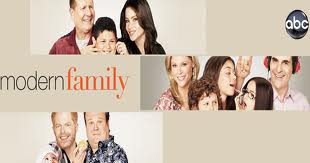To judge others or not to judge others…. And the seeming paradoxical personality types behind that decision.
It appears to me the most judgmental people I have encountered in life also seem to be the least critical of themselves. In other words, they are ruthlessly hard on other people but seem tough on themselves not at all.
It’s not so much that they give themselves “a pass” —rather it jus.t never seems to occur to them to apply personally the same critiques, criticisms and value judgments they almost instinctively apply to others. They just don’t see the need.
Conversely, those people I have encountered who are the least judgmental (the most accepting and understanding of other people), usually judge themselves the hardest of all. They seem easily to find flaws within themselves but not in others. It’s not that they give other people a pass — it just doesn’t seem to occur to them to bother commenting on others weaknesses, shortcomings and failings that they seem to instinctively acknowledge in themselves. They just don’t see the point.
This does appear to be a paradox but I don’t believe it is at all. In fact, I think it makes perfect sense once understood. Those people who are deeply self-aware —aware of what makes them tick, aware of the things they could and should have done better, the regrets they have, their idiosyncrasies, shortcomings, character flaws and excesses— are far less judgmental of others for these same flaws because they can’t comfortably criticize others for things they know they have done (or could do) themselves. They tend also to be more generous and understanding–both with themselves and others. They may not approve of all parts of themselves but their deeper and broader self-awareness of the whole of themselves including their own imperfect and halting struggles to improve themselves, allows them to grant others the same dignity and respect they have learned to show to themselves.
By contrast, those who are quick to criticize, belittle and denounce the flaws, faults and hypocrisies of others are able to do so because they appear to imagine they are in some sort of protective cocoon that prevents them from ever having to wonder if they have done –or, God forbid, are doing— anything regrettable or foolish in their own life. They rarely appear to be struggling to improve their own personal imperfections but instead, if pressed about themselves, will draw deeper into their cocoon and resist the horrifying notion that they have anything at all to change about themselves. They are, in their view, not perfect– but a finished product that doesn’t need revisiting. They are done. And yet their alter-egos, those who don’t seem naturally inclined to scold, when confronted about a need to take a closer look at themselves, do so reflexively and gladly, comfortable in the knowledge they will be better off for the effort.
They are never done. Nor need cocoons to protect them.
Those who feel less inclined to judge others, I believe, are that way because they are able to lay down their pre-conceptions about themselves, others, and the world we all live in.
They learn at some point that the things they “think” they dislike about themselves, others and the world aren’t necessarily true. In other words, it’s not the “truth” they are upset about but the story they are assuming is true about themselves or some person, situation or circumstance. Often a story they have never questioned and in many cases aren’t even aware or even know where it came from or why they believe it. It’s just there. As a sort of invisible anchor responsible for their world view.
 Until one day they realize, often serendipitously, that something that they are mad about—some perceived personal flaw in themselves or another, some characteristic about another person or some unfair bias they see in a life situation working against them, isn’t what they thought it was at all. In fact, it may even be the exact opposite. The actual motive, reason, excuse, cause or purpose of something that has fueled their angst for many years is unmasked as false or non-existent.
Until one day they realize, often serendipitously, that something that they are mad about—some perceived personal flaw in themselves or another, some characteristic about another person or some unfair bias they see in a life situation working against them, isn’t what they thought it was at all. In fact, it may even be the exact opposite. The actual motive, reason, excuse, cause or purpose of something that has fueled their angst for many years is unmasked as false or non-existent.
At that moment, these individuals truly get a glimpse of what a “blessing in disguise” really looks like. They learn a silver lining isn’t a lining at all but often just a clearing up of their own misconception based on the inability to see more than they—or any of us— are capable of seeing clearly at an earlier time.
Maybe this kind of humbling epiphany happens several times before these individuals really change. But at some point they realize that they are mad more at their preconceptions about the world than they are about the world itself —and as those preconceptions dissolve they are replaced by wisdom.
The more rigid and judgmental, it seems, take an opposite tack. They choose a course requiring them to spend a much greater deal of time trying to prove to themselves and others that the world does, indeed, fit into the cramped preconceptions they hold fast to with an increasing tenacity. It can be, to those observing, like watching a grown man who believes he can still fit into the same favorite outfit he wore as a self-assured boy. Or to be even more metaphorical, like a grown person trying to cram the world they are discovering into a cramped container they used as a child to fit their world into so that it made sense.
It isn’t that all their old ideas are wrong. It’s just that their container, comforting and familiar as it is, doesn’t have room for any new ideas. And there seems to be no inclination to make room by discarding old ideas that don’t work anymore. After a while the life of these individuals starts to seem more about protecting that old and comforting container they are trying to fit their world into rather than about discovering and understanding the world they are experiencing each day.
Their less critical brethren don’t cease to judge or make discriminating decisions. They just do so with a increasing awareness of the limited understanding on which they are making their life decisions. The awareness of what they “don’t know” turns out to be a compliment, not a threat, to what they do know. And humbly embracing what they don’t know becomes, ironically, one of the greatest and most useful tools for living in their life toolbox. And to stay with the metaphor, these individuals seem to have replaced their small and rusty container with an ever-changing and growing toolbox to help them navigate the world they encounter each new day. Their life becomes more about living forward with this malleable toolbox than living backward with a cramped container they aren’t sure how they ever came into possession of in the first place.
The “life container” and “life toolbox,” of course, represent a person’s world view. How a person views and navigates the world. Is life something that is “understood and done” or something else that we should face with greater humility and openness? At least that is what I am trying to communicate in my own inartful and inadequate way.
In trying to sum up what I am trying to say, it would sound something like this: “The more we are aware of what we don’t know — and acknowledging that what we believe we do know could just as easily be false –the more knowledgeable and informed we become. And the more confident and peaceful we find ourselves with the decisions we make. The more open we are to serendipity and Grace. And the richer our lives seem to become.”
In other words, yes, “Knowledge is Power.” But knowledge coupled with the humility of understanding how little we still know —or can ever know — is even more powerful.

















Leave a Reply